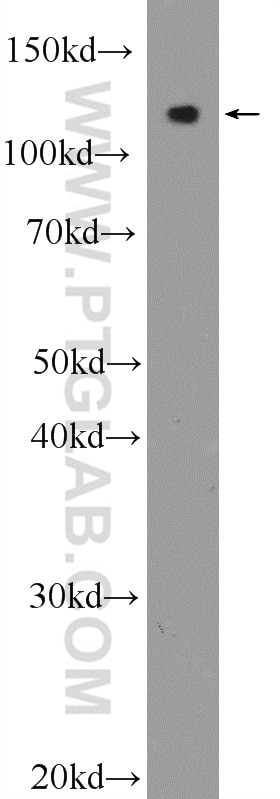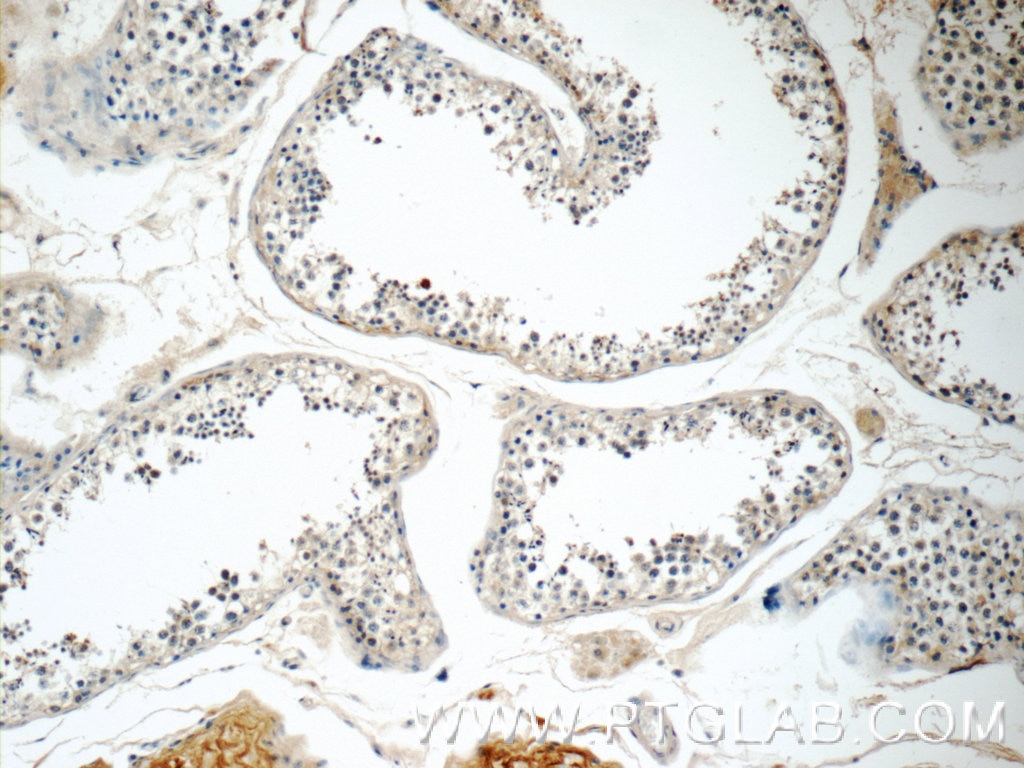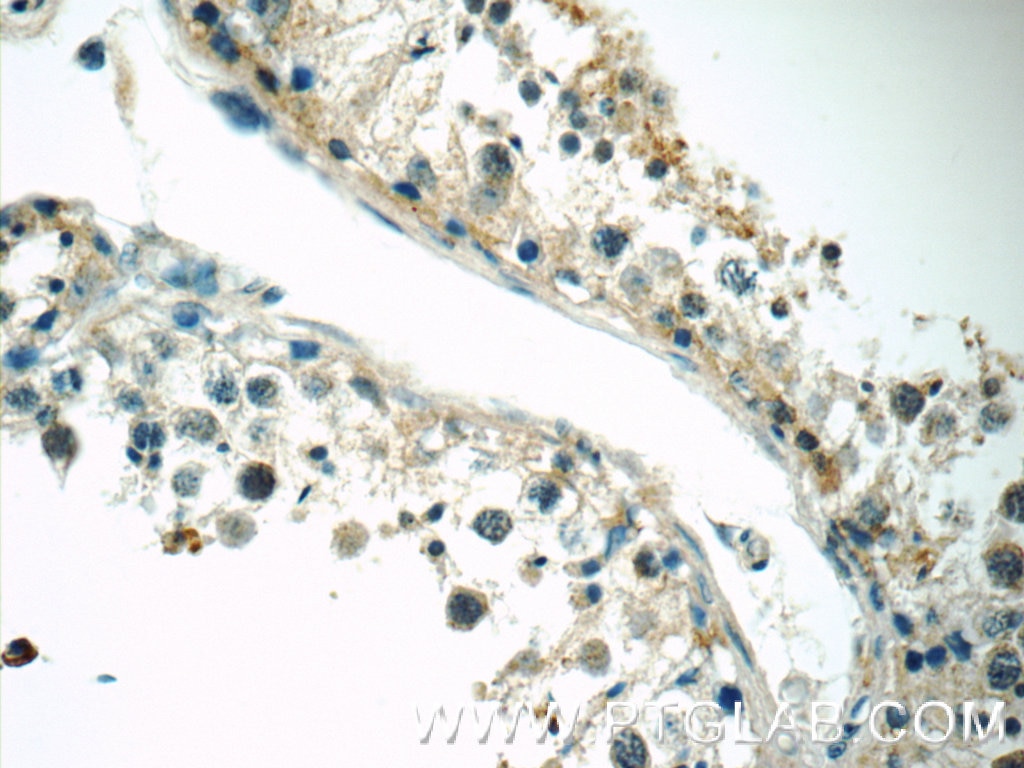Tested Applications
| Positive WB detected in | mouse brain tissue |
| Positive IHC detected in | human testis tissue Note: suggested antigen retrieval with TE buffer pH 9.0; (*) Alternatively, antigen retrieval may be performed with citrate buffer pH 6.0 |
Recommended dilution
| Application | Dilution |
|---|---|
| Western Blot (WB) | WB : 1:500-1:1000 |
| Immunohistochemistry (IHC) | IHC : 1:50-1:500 |
| It is recommended that this reagent should be titrated in each testing system to obtain optimal results. | |
| Sample-dependent, Check data in validation data gallery. | |
Product Information
25836-1-AP targets RGSL1 in WB, IHC, ELISA applications and shows reactivity with human, mouse samples.
| Tested Reactivity | human, mouse |
| Host / Isotype | Rabbit / IgG |
| Class | Polyclonal |
| Type | Antibody |
| Immunogen | RGSL1 fusion protein Ag20269 Predict reactive species |
| Full Name | regulator of G-protein signaling like 1 |
| Calculated Molecular Weight | 1076 aa, 126 kDa |
| Observed Molecular Weight | 125 kDa |
| GenBank Accession Number | BC142944 |
| Gene Symbol | RGSL1 |
| Gene ID (NCBI) | 353299 |
| RRID | AB_2880263 |
| Conjugate | Unconjugated |
| Form | Liquid |
| Purification Method | Antigen affinity purification |
| UNIPROT ID | A5PLK6 |
| Storage Buffer | PBS with 0.02% sodium azide and 50% glycerol , pH 7.3 |
| Storage Conditions | Store at -20°C. Stable for one year after shipment. Aliquoting is unnecessary for -20oC storage. 20ul sizes contain 0.1% BSA. |
Background Information
RGSL1, also named as RGSL and RGSL2, belongs to the RSG family. RGSL1 is involved in the G-protein signaling regulation with a suggested role in prostate carcinogenesis (PMID: 28662289). RGSL1 has 6 isoforms with the molecular mass of 47-63, 71 and 126 kDa. RGSL1 may interact with other markers in the development of breast cancer (PMID: 21135262).
Protocols
| Product Specific Protocols | |
|---|---|
| WB protocol for RGSL1 antibody 25836-1-AP | Download protocol |
| IHC protocol for RGSL1 antibody 25836-1-AP | Download protocol |
| Standard Protocols | |
|---|---|
| Click here to view our Standard Protocols |







